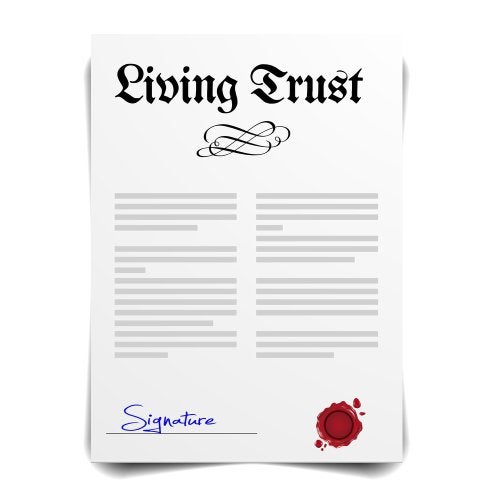-
What Is a Children’s Trust?
A children’s trust can be a useful estate planning tool for families with small children. It allows parents to leave assets to children while controlling the age at which they have access to them. Your estate lawyer in Baltimore can help you decide if this kind of trust could be right for you.
With a children’s trust, benefactors assign assets to a trust for a child and identify a trustee to control the assets until the child reaches an age set by the benefactor. For instance, while estate planning, parents may decide to set up a trust for their toddler and name a close relative as the trustee. The trust says that the child cannot control the inheritance until they reach age 18. If both parents are deceased before the child reaches 18, he or she receives the trust but the trustee manages it as directed by the parents. If both parents are deceased after the child reaches 19, he or she receives the inheritance without the involvement of the trustee.
Children’s trusts put many parents’ minds at ease while estate planning. Your estate lawyer can guide you through the process of establishing your trust.

-
Tips for Talking to Your Spouse About Estate Planning
Estate planning is one of the most important things you and your spouse will do for your family, but starting the conversation isn’t always easy. Scheduling an appointment with an estate lawyer in Baltimore is a good step, but it can be helpful to have a conversation before your meeting so you can align your priorities and come up with a list of questions. Use these tips for talking to your spouse about estate planning.

Start With Why
Before you begin the estate planning process, discuss why it is important to you and why you want to begin it now. In some cases, you may only have a vague idea that estate planning is something you’re supposed to do and feel like you are at the age to do it. In other instances, you may have very specific goals you want to accomplish. By identifying why you want to make a plan for your estate, you can focus in on your goals and create a framework for your decision making process.
Identify Your Non-Negotiable Points
You and your spouse may have some very specific things you hope to accomplish with your estate, and it’s important for your attorney to understand these needs up-front. You may have a family business that you want to pass on to your heirs in a specific way, or you may have a child with special needs that you want to make preparations for. Make a list of the things your estate must do so you can make sure your plans meet these needs appropriately.
Take a Break When You Disagree
Estate planning should be something you and your spouse feel good about together, not the source of conflict. If your conversation becomes heated over things like making a living will or setting up a trust, take a break. Allowing each other time to think and returning to the conversation when you’re calm again will make the process easier.
-
Common Reasons for Post-Divorce Mediation
Mediation can be a useful tool during divorce to settle issues with as little acrimony as possible. Whether or not mediation was part of your initial divorce, it can also be helpful in solving new issues as they arise after the divorce. Post-divorce mediation in Baltimore allows former spouses to address unforeseen circumstances without reopening old wounds and going into the process as adversaries, since mediation is focused on building agreements that are acceptable for everyone. Here are some of the many reasons people attend post-divorce mediation.

Child Support Modification
There are numerous reasons why a child support agreement may need to be modified, from job loss to increased income. When a circumstance arises that causes one parent to reopen the discussion about child support, mediation allows him or her to do so without the contentious nature of court. A mediator can help both sides lay out their opinions and work with them to build a new agreement that satisfies both sides.
Child Custody Modification
Child custody is almost always a difficult issue during divorces, and sometimes, after the final decree is issued, parents find that the agreement isn’t working. Perhaps the children want to split up their time differently or one parent feels like he or she needs more time with the children. In some cases, parents need to adjust child custody and visitation schedules because of relocations or changes in working hours. Rather than arguing over the issue in court, mediation lets parents work together on the same side to give and take on an agreement that meets both of their needs.
Alimony Modification
Sometimes, the circumstances that were in place during the original alimony ruling may change, forcing the need to modify the agreement. For instance, the spouse paying alimony may lose his or her job, changing his or her ability to pay, or a spouse receiving rehabilitative alimony may finish school early and land a lucrative job. Mediation gives both parties a place to discuss their concerns openly and collaboratively in order to come up with a solution.
-
Should You Consider a Trust?
A trust is a financial tool often used during the estate planning process . When a trust is created, a third party, called a trustee, is given control of financial assets meant for an inheritor or beneficiary. During the creation of your trust, you and your estate lawyer serving Baltimore can choose the type of trust you want and determine the terms that must be fulfilled before your beneficiary gains control of the trust himself. In many cases, trusts are passed on to beneficiaries upon the settlor’s death or when the beneficiary reaches a certain age. Creating an irrevocable trust is an excellent way to reduce estate taxes after your death; furthermore, the property and assets that you place into a trust does not go through the probate process. These factors ensure that your chosen beneficiaries will receive the amount you wish them to inherit in full and much more quickly than if legal proceedings are needed to determine inheritance.


